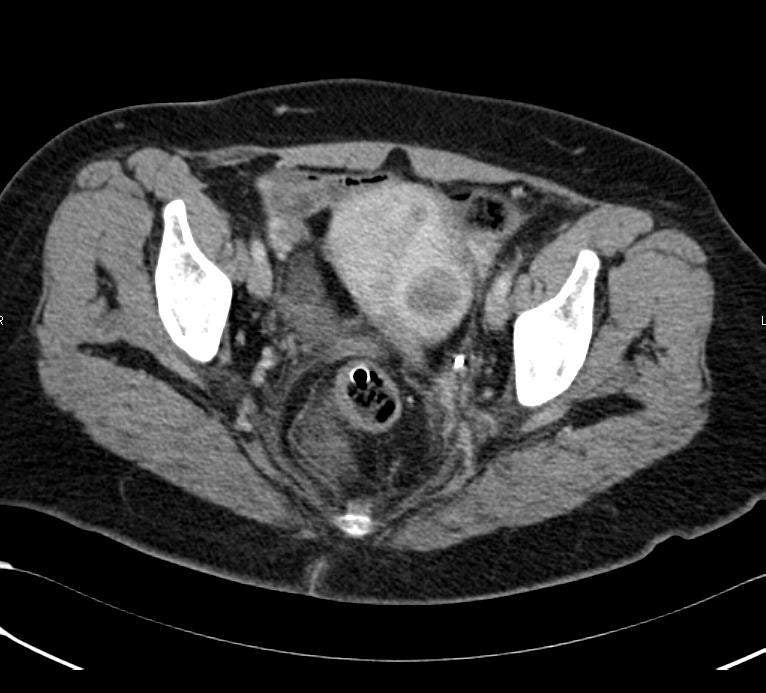
Results from a Phase III trial of AbbVie’s elagolix, a treatment for uterine fibroids and endometriosis, indicate the company is poised to submit its drug to the US Food and Drug Administration (FDA) for near-term approval.
Elagolix is an orally-administered molecule that binds to the gonadotropin-releasing hormone (GnRH) receptors in the pituitary gland and inhibits luteinising hormone (LH) and follicle-stimulating hormone (FSH) secretion. This causes a decrease in the production of ovarian sex hormones oestradiol and progesterone, which cause conditions such as uterine fibroids and endometriosis.

Discover B2B Marketing That Performs
Combine business intelligence and editorial excellence to reach engaged professionals across 36 leading media platforms.
Analysts have predicted elagolix will be a blockbuster treatment for AbbVie, and expectations have been further bolstered by the positive findings of the company’s recent Elaris trial.
AbbVie has already submitted a new drug application (NDA) for elagolix as a treatment for endometriosis, with a response due in the second quarter of this year. Evaluate Pharma has labelled the drug one of the top 10 likely rollouts for 2018, with predictions that it will hit a $1.2bn peak in sales.
In the study, the efficacy and safety of elagolix was examined in women with uterine fibroids between the ages of 18 and 51. The drug was tested alone (300mg twice a day) and in combination with low-dose therapy oestradiol.
Elagolix met its primary endpoint of reducing heavy menstrual bleeding in 76.2% of women when used in combination with oestradiol. This was compared to placebo, which caused a reduction in 10% of patients. Clinical response was based on a guideline reduction of 50% or more in menstrual blood loss volume compared to baseline at the six-month mark.

US Tariffs are shifting - will you react or anticipate?
Don’t let policy changes catch you off guard. Stay proactive with real-time data and expert analysis.
By GlobalDataHypoestrogenic effects, such as hot flush and reduction in bone mineral density, were observed in the study. The overall safety profile for elagolix was consistent with what was observed in previous studies for uterine fibroids.
Last month AbbVie announced similarly strong results from another Phase III study that trialled elagolix in the same condition. The trial recorded a clinical response rate of 68.5% in the drug arm compared to 8.7% in the placebo group. Data from the two trials will inform a regulatory submission for elagolix, and all data is due to be presented at an upcoming medical conference.
According to AbbVie’s press release, around 80% of women may be affected by uterine fibroids by the age of 50 and, though fibroids can be asymptomatic, 25% of patients will experience painful symptoms.
Uterine fibroids, also known as leiomyomas or myomas, are non-cancerous, hormone-responsive muscle tissue tumours of the uterus. They are the most common type of abnormal growth in a woman’s pelvis and can manifest themselves in a variety of ways, including heavy menstrual bleeding, painful periods, vaginal bleeding at times other than menstruation, anaemia, and pain in the abdomen or lower back.
Current treatment options include surgery, such as hysterectomy or myomectomy, endometrial ablation, uterine artery embolisation, magnetic resonance imaging-guided ultrasound, and medications such as oral contraceptives, progestins, selective progesterone receptor modulators, and GnRH agonists.
“Millions of women currently diagnosed with uterine fibroids are faced with limited non-surgical options,” General Medicine Development Vice President Dawn Carlson said. “The results from this study demonstrate elagolix has the potential to be an important oral treatment option for women suffering from uterine fibroids.”
Myovant, one of the biotechs launched by Vivek Ramaswamy, is developing its own treatment for uterine fibroids in a partnership with Japanese pharmaceutical Takeda. The drug, relugolix, is currently in Phase III clinical trials for the treatment of endometriosis, uterine leiomyoma and prostate cancer.





